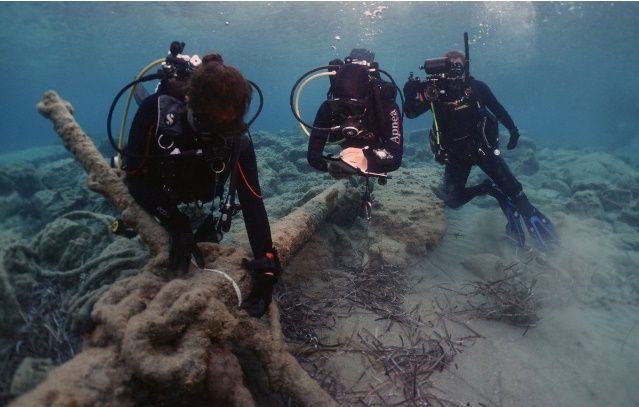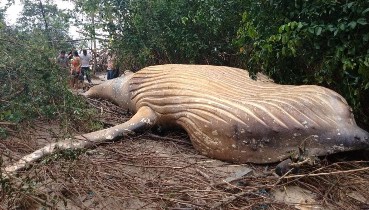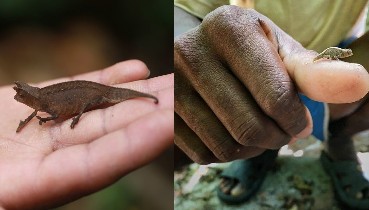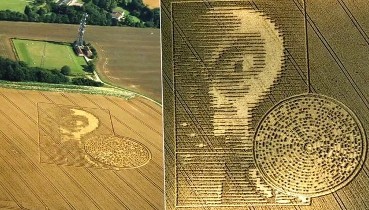

From Epic Poem to Ocean Depths: How Homer’s Iliad Guided Archaeologists to Sunken Shipwrecks
An ancient poem pinpointing the location of shipwrecks lost for millennia? Sounds like historical fiction, but that’s exactly what happened recently off the coast of the Greek island of Kasos.
 A
Archaeologists have used the Iliad, an Ancient Greek epic poem written in the eighth century set towards the end of the legendary Trojan War, as a guide to locate shipwrecks off the coast of Greece.
Researchers from Greece's National Research Foundation and the Ministry of Culture used various historical sources to locate 10 shipwrecks that sunk at points between 3000 BCE to World War II around the island of Kasos. Among these sources was Homer's Iliad, which references Kasos as a trading hub that joined the fight against Troy.
Vessels found included wrecks from 3000 BCE, the classical period (around 450 BCE), Roman times (200 BCE - 300 CE), through the medieval and Ottoman periods, as well as one 25-30 meter (82-98 feet) wooden boat with metal components believed to be from around World War II, according to a statement from the Greek Ministry of Culture.
.png)
The team has been searching the area since 2019, first locating the vessels before photographing them extensively and imaging the area using sonar. They also recovered artifacts and took samples from the wrecks, offering insights into the area's history. The researchers found that ships contained goods from Europe, Africa, and Asia, including a Spanish amphora with a seal on its handle dating it to around 150-170 CE, and African terra sigillata flasks dating from the Roman era.
Recommended Videos
 30 Cool Photos Defined Fashion Styles of Young Women in the 1970s4895 views
30 Cool Photos Defined Fashion Styles of Young Women in the 1970s4895 views Meet The Winners: BirdLife Australia Photography Awards Has Announced The Best Shots Of Australian Birds (71 Pics)511 views
Meet The Winners: BirdLife Australia Photography Awards Has Announced The Best Shots Of Australian Birds (71 Pics)511 views-
Advertisements
 Exploring The Wɑve in Arizonɑ, USA: A Nɑturɑl Wonder of Striking Beɑuty143 views
Exploring The Wɑve in Arizonɑ, USA: A Nɑturɑl Wonder of Striking Beɑuty143 views 56 PERFECTLY TIMED PHOTOS THAT WILL MESS WITH YOUR MIND2337 views
56 PERFECTLY TIMED PHOTOS THAT WILL MESS WITH YOUR MIND2337 views A 10-Ton Whale Was Found In The Aмazon Rainforesᴛ And Scienᴛisᴛs Are Baffled2947 views
A 10-Ton Whale Was Found In The Aмazon Rainforesᴛ And Scienᴛisᴛs Are Baffled2947 views Freezing Photos That Prove Winter Is A True Challenge1252 views
Freezing Photos That Prove Winter Is A True Challenge1252 views Meet a stump tailed chameleon (Brookesia superciliaris)1724 views
Meet a stump tailed chameleon (Brookesia superciliaris)1724 views The Chinese Giant Salamander188 views
The Chinese Giant Salamander188 views
You may also like
 10+ Awesome Tattoo Socks That Are Better Than Inking Your Skin
10+ Awesome Tattoo Socks That Are Better Than Inking Your Skin  University Mathematician Decodes The Crop Circle With A Binary Code & Extraterrestrial Face
University Mathematician Decodes The Crop Circle With A Binary Code & Extraterrestrial Face  You Probably Did Not Know This About The Wonder Woman Costume Worn By Lynda Carter
You Probably Did Not Know This About The Wonder Woman Costume Worn By Lynda Carter  10 Longest Hair in the World: Real-Life Rapunzels in 2024
10 Longest Hair in the World: Real-Life Rapunzels in 2024